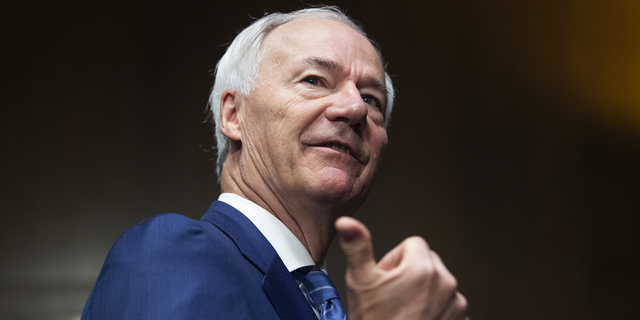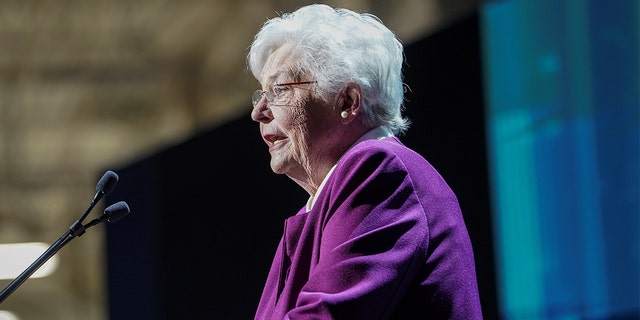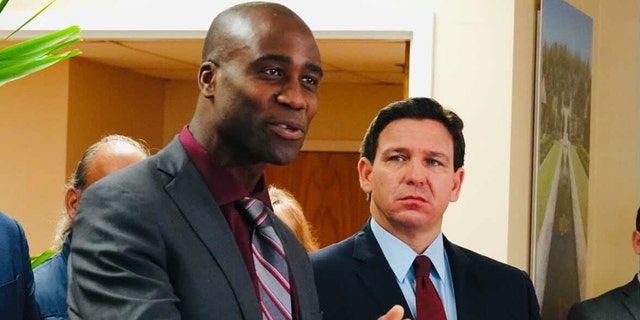Multiple states crack down on transgender treatments for minors amid growing legal debate
Multiple states have cracked down on various forms of gender transition for minors amid the ongoing debate regarding what has become known as “gender-affirming care” for young people.
More than half of states in the U.S. have either passed or attempted to pass bills restricting access to transgender treatments for minors.
As of November, Arkansas and Alabama are the only two states to have passed legislation issuing a total ban on transgender treatments for minors, although such are presently in legal limbo following court injunctions. Arizona, Tennessee, Texas and Florida have effectively issued partial bans. The restrictions in Texas and Florida did not emerge from legislation.
Provisions in some of the bills that have been passed or introduced include criminalizing medical professionals who provide transgender treatments to minors, punishing parents who help minors obtain such treatments, limiting insurance or Medicaid coverage of the treatments, and allowing damages to be filed against medical providers.
RACHEL LEVINE’S CLAIM ALL AGREE ON ‘GENDER-AFFIRMING CARE’ IS SLAMMED BY DOCTORS ‘IN HIDING’
The restrictions have led to various lawsuits challenging their constitutional merits.
Arkansas
In 2021, Arkansas lawmakers passed the first ban in the U.S. on physicians administering puberty-blocking drugs, cross-sex hormones and transgender surgeries to minors, overriding Republican Gov. Asa Hutchinson’s veto.
The law also banned medical providers from referring minor patients seeking such treatments to other providers, and prohibited private insurance and Arkansas Medicaid from funding such procedures. Violators could face potential loss of their medical licenses.

The law was met with a federal lawsuit filed by two doctors and four families with transgender children, who argued the law violated the 14th Amendment’s equal protection clause protecting against illegal sex discrimination. They also claimed violations of their rights to parental autonomy under the 14th Amendment, as well as their right to free speech under the First Amendment.
The lawsuit has led to the first trial of its kind over the issue of banning transgender treatments for minors, which concluded last week following four days of testimony in October and four more in November.
U.S. District Judge James M. Moody Jr., whose temporary block of the ban was upheld this summer by a federal appeals court, has not said when he will issue his latest ruling, according to The New York Times.
Alabama
In April, Alabama become the second state to ban transgender treatments for minors when Republican Gov. Kay Ivey signed a bill that prohibits minors from receiving puberty blockers, hormone therapy and transgender surgeries. The bill makes it a felony to “engage in or cause” a minor to receive such treatments, and any violation is deemed a felony punishable by up to 10 years in prison or a fine of up to $15,000.

School officials in the state are also banned under the statute from withholding from parents that a child’s “perception of his or her gender or sex is inconsistent with the minor’s sex.”
TRANS PSYCHOLOGIST FILES BRIEF AGAINST MARYLAND SCHOOL DISTRICT HIDING TRANSITIONS FROM PARENTS: ‘TERRIBLE IDEA’
“I believe very strongly that if the good Lord made you a boy, you are a boy, and if he made you a girl, you are a girl,” Ivey said in a statement at the time. “We should especially protect our children from these radical, life-altering drugs and surgeries when they are at such a vulnerable stage in life.”
Four Alabama families with transgender children, two health care providers and a clergy member subsequently filed a federal lawsuit, which was later joined by the U.S. Department of Justice (DOJ). The suit was consolidated with a similar one brought by two other Alabama families with transgender children.
ALABAMA DOCTORS, PARENTS OF TRANSGENDER KIDS SUE TO BLOCK LAW BANNING CROSS-SEX HORMONES

A federal court entered a preliminary injunction against the law in May, which blocked enforcement of its portions banning puberty blockers and cross-sex hormones pending further litigation. Prohibitions on irreversible transgender surgery and schools keeping a child’s gender identity from parents remained in place.
Alabama has appealed the case to the U.S. Court of Appeals for the 11th Circuit.
Texas
In February, Republican Gov. Greg Abbott issued a directive to the Texas Department of Family and Protective Services (DFPS) that labeled some forms of transgender treatments for minors as child abuse.
Abbott urged the state agency to investigate and potentially issue penalties to families who back such procedures, including possible removal of their children.

Medical professionals under the directive are also potentially subject to penalties.
When the directive was challenged with litigation, a state court entered a temporary injunction in March that blocked the state from enforcing it while the case is pending. The state court ruled that Abbott was stepping outside the bounds of his legal authority by issuing the directive, and that plaintiffs were threatened with irreparable harm by it.
The Texas Supreme Court later modified the injunction, limiting its application only to enforcement of the directive against the plaintiffs pending further litigation. The case, which has drawn the involvement of the American Civil Liberties (ACLU), remains on appeal before the state’s Third Court of Appeals.
Florida
Florida became the second state to effectively limit transgender treatments for minors without passing a bill when a joint committee of Florida’s two medical boards voted in November to approve a rule banning them.
FLORIDA MEDICAL BOARDS APPROVE BAN ON PUBERTY BLOCKERS, TRANSGENDER SURGERIES FOR MINORS
The Florida Board of Medicine and the Florida Board of Osteopathic Medicine approved the rule prohibiting minors from receiving puberty blockers, cross-sex hormones and transgender surgery after Florida Surgeon General Joseph A. Ladapo asked the Board of Medicine in June to establish a standard of care for such “complex and irreversible procedures.”

“Today, the Boards of Medicine & Osteopathic Medicine voted to protect our children from irreversible surgeries and highly experimental treatments,” Ladapo said in a statement at the time. “I appreciate their integrity for ruling in the best interest of Florida children despite facing tremendous pressure to permit these risky and unproven treatments.”
“Children deserve to learn how to navigate this world without harmful pressure. Florida will continue to fight for kids to be kids,” Ladapo added.
Such rules go against recommendations from groups such as the American Academy of Pediatrics, the Endocrine Society and the American Medical Association. The Society for Evidence-Based Gender Medicine (SEGM), an international group of more than 100 clinicians and researchers, issued a report earlier this year regarding their concern about what they call the “lack of quality evidence for the use of hormonal and surgical interventions as first-line treatment for young people with gender dysphoria.”
At least 53,800 young people were at risk of losing gender-related medical care because of such restrictions, according to a March study by the Williams Institute at the UCLA School of Law.
Read the full article Here


